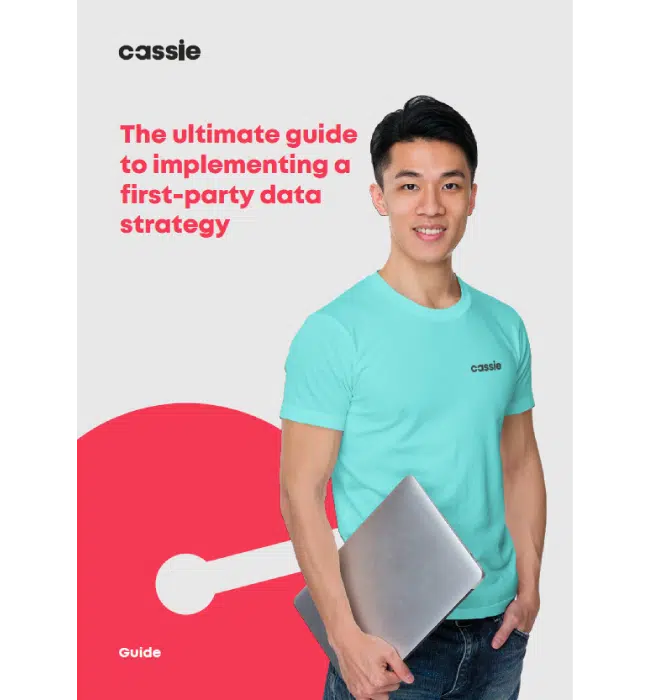Lush campaigns against big tech: Prioritizing transparency
Posted: November 29, 2023
Lush is a global brand that’s not shy of making a statement.
Known for their ethical practices and unwavering stance on animal testing, they don’t tend to stick to traditional marketing tactics (they don’t spend a penny on adverts) and put a huge emphasis on their core values of doing things the right way:
All business should be ethical and all trade should be fair. Individual companies should not stand out simply by not being damaging or unfair. No company should be trading from an unethical position and society has a right to expect as the norm fairness and resource stewardship from the companies that supply them.
In 2021, Lush made the decision to boycott social media platforms ‘until the platforms take action to provide a safer environment for users.’.
And now in 2023, instead of the usual Black Friday discounts, they’ve returned to Instagram and Facebook but with a warning to all that use these platforms: big tech has eyes everywhere and they’re using a surveillance-for-profit business model to track and sell your data.
As data privacy concerns continue to grow around the world, we’re looking into how Lush weaponizes ethical campaigning to build engagement and develop trust with consumers.
What is Lush campaigning for?
Lush has teamed up with People vs Big Tech to challenge the power of Big Tech with all proceeds going to them from The Cloud bath bomb.
In partnership with People vs Big Tech, Lush is campaigning for people to sign ‘The People’s Declaration’, calling for legislators to put a stop to the power and abuses of Big Tech.
To be specific, they are calling that there needs to be new legislation and regulations that must:
1. Turn off the manipulation machine
It is time for Big Tech platforms to de-risk their design, detox their algorithms, give users real control over them and be held to account for failing to do so. This means bringing an end to predatory and addictive design features.
2. Stop surveillance for profit
We’ve been conned into giving “consent” for surveillance. We were never given a meaningful choice. The use of digital services cannot be conditional on acceptance of surveillance and profiling; we call for a ban on surveillance advertising.
3. Put people back in charge
Big Tech cannot continue to call the shots as judge and jury. We need stronger powers for regulators to hold Big Tech to account, including through robust audit powers that can finally crack open the black box of these corporations.
Point #2 is especially relevant right now, with Meta looking to bring in subscription fees for users wishing to protect their data.
When it comes to consent, many data privacy regulations call for explicit opt-in or opt-out designation.
The dark side of Threads: Dark patterns and data privacy concerns
How does this help Lush as a brand?
Lush has built their brand on a reputation for being vocal on consumer issues – privacy is just the latest in a string of campaigns.
Their willingness to use their platform as a voice for the masses helps cultivate the perception that they’re on the side of consumer. In turn, this builds trust and loyalty with their target audience.
Brands that prioritize social responsibility resonate well with consumers who value these principles. Such associations create a favorable perception and encourage loyalty.
How can brands build trust during a cost of living crisis?
Why does privacy matter for brands and marketers?
Privacy is not just a legal obligation or a technical challenge. It is also a strategic opportunity and a competitive advantage for brands and marketers who want to build trust and loyalty with their customers.
Consumers increasingly value ethical behavior, and brands that stand out for their ethical practices often gain a competitive edge, attracting customers who prioritize ethical considerations in their purchasing decisions.
We’ve seen this with the rise of the B Corp Certification as a way for brands to publicly demonstrate their corporate responsibility.
Data privacy is another rising concern among consumers, with over three-quarters of US consumers afraid that their online data is not secure.
Companies are collecting more data than ever before, including personal information, habits, and locations, raising worries about its usage and security.
Governments have responded by implementing stricter regulations, like the GDPR in the EU and CCPA in California, empowering individuals with more control over their data.
We’ve seen multiple organizations outside of Meta facing litigation because they’ve collected or shared data without consent.
People are becoming more aware of their data rights, demanding transparency from companies. The global nature of data transfer and the rise of IoT and smart devices add to these concerns. It’s a complex landscape where the balance between technological advancements and protecting personal privacy is increasingly crucial.
How can marketers make privacy their advantage?
Privacy is about respecting the rights and preferences of your customers, and giving them control over how their data is collected, used, and shared. By doing so, you can demonstrate that you value their relationship and care about their needs and expectations.
But in the digital age, data is the currency of business. Brands and marketers rely on data to understand their customers, segment their markets, target their campaigns, measure their performance, and optimize their strategies.
Data can also help brands and marketers create innovative and personalized products and services, and enhance their customer experience.
So you’re faced with the privacy vs personalization paradox.
Data comes with responsibilities and risks. Customers are increasingly concerned about how their data is handled, who has access to it, and what it is used for.
They are also more aware of their rights and options, and more willing to exercise them. They can easily switch to other brands, opt-out of communications, block ads, or file complaints if they feel that their privacy is violated or compromised.
Privacy by design
A privacy-first approach means that you design your products and services with privacy in mind from the start, and not as an afterthought. It means that you collect only the data that you need, and use it only for the purposes that you have disclosed and obtained consent for.
It means that you protect your data from unauthorized access, use, or disclosure, and that you delete or anonymize it when it is no longer needed.
It also means that you inform your customers about your privacy practices, and give them easy and meaningful ways to access, update, or delete their data, or to opt-out of certain activities or features.
By following these principles, you can show your customers that you respect their privacy and that you are accountable for your actions.
5 marketing strategies that can build trust
Permission-based: Shifting from intrusive methods to opt-in strategies where customers willingly share their data and offering transparency in regards to what you need their data for.
Collect preferences: Understand more about your users by collecting granular preferences, so that you know what topics they’re interested in or what specific channels they’d like to be contacted on, rather than opting them into everything.
Collect first-party data: Use less intrusive methods to engage and interact with your customers, aiming to provide value in exchange for first-party data.
Education and communication: Brands are investing in educating consumers about their privacy policies, ensuring transparency in data usage.
Customization within boundaries: Brands can still provide personalized experiences within the boundaries of respecting customer privacy, delivering a sense of understanding and care.

Get to grips with first-party data collection
Our free guide will give you the knowledge and tools to take your first-party data strategy to the next level. Here’s what you can expect:
- Master the art of obtaining rich and valuable insights from your customers
- Learn to navigate the challenging landscape of data privacy regulations whilst building customer trust
- An overview of the tools and technologies available so you can optimize your data collection
- Follow our framework to integrate data collection practices into your business

